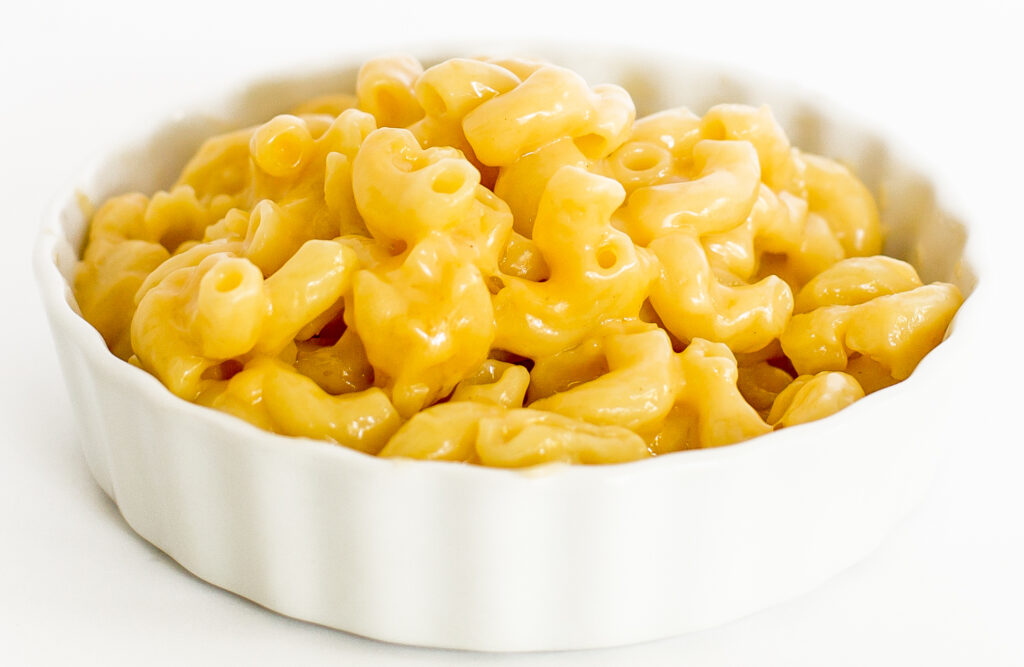When I meet with clients in my office I say this, “For the next 5 minutes, don’t look at my earrings.” Most eyes go STRAIGHT to the earrings. They didn’t even notice my earrings … until I said that. Suddenly, there’s interest in my earrings. It’s the same with ANYTHING you’re told to cut out of your diet. All you can think about is the thing you’re not allowed to eat. In this situation, the thing you’ve cut out has too much control.

When you label certain foods as bad and off limits, they become the elusive, forbidden fruit and therefore more alluring. This gives those foods more power, making you crave them more than you typically would.14 Then, when you eat that food, you feel guilty, which becomes another emotional trigger for overeating.
I call this the power dynamic. When you feel you can’t have something, that particular something has all the power. Remember that food will not harm you as long as you practice moderation. We want to upset that power balance and give the power back to you!
While we’re talking about permission, let’s talk about the “cheat day.” I think the entire notion of a cheat day is hysterical. I mean, think about what we’re saying. Are we actually building in a day to be immoral? Dishonest? Isn’t that what cheating is? I get that you want to feel rewarded by strictly adhering to a plan, but rewarded by cheating?
Okay, I’ll stop asking questions. I’m just saying it sounds really backward when you think about it. Cheating implies that you’ve taken a very wrong turn and it also implies that you should feel guilty. If you keep portions in check, regardless of what you eat, there won’t be a need to cheat or feel guilty.
Without permission, you’re left with guilt about the food you ate; that you weren’t “allowed” or supposed to eat. For some people the guilt becomes overwhelming. Guilt can lead to feelings of bitterness, anger, defensiveness, isolation and helplessness. These feelings can then lead to low self-esteem and the accompanying negative and unhelpful feelings about yourself.76-77
With all this going on, it’s easy to feel defeated in your quest to become more healthy.14 All because you feel guilty over eating a certain food? Really? Ironically, people frequently end up overeating to comfort themselves about the guilt, aka throwing in the towel.77-78 It’s easy to use food to escape or numb the feelings of guilt — even when the guilt was over food in the first place. This is a useless round and round activity, a downward spiral that only gives short-term relief.
Your reaction to guilt can drain you mentally, emotionally and physically, leaving you lacking the energy you need to take action in a positive direction. When you are tired and feeling drained, it is difficult to feel positive about anything! It’s no wonder so many people eventually go off an all-or-nothing, strict diet plan. They just can’t take it anymore and with good reason.
REFERENCES
14. Rebello C, Greenway F. Reward-Induced Eating: Therapeutic Approaches to Addressing Food Cravings. Adv Ther. 2016;33(11):1853-1866.
76. Byrne S, Cooper Z, Fairburn C. Psychological predictors of weight regain in obesity. Behav Res Ther. 2004;42(11):1341-1356.
77. Kuijer R, Boyce J. Chocolate cake. Guilt or celebration? Associations with healthy eating attitudes, perceived behavioural control, intentions and weight-loss. Appetite. 2014;74:48-54.
78. Mozaffarian D. Dietary and Policy Priorities for Cardiovascular Disease, Diabetes, and Obesity. Circulation. 2016;133(2):187-225.

Comments are closed.